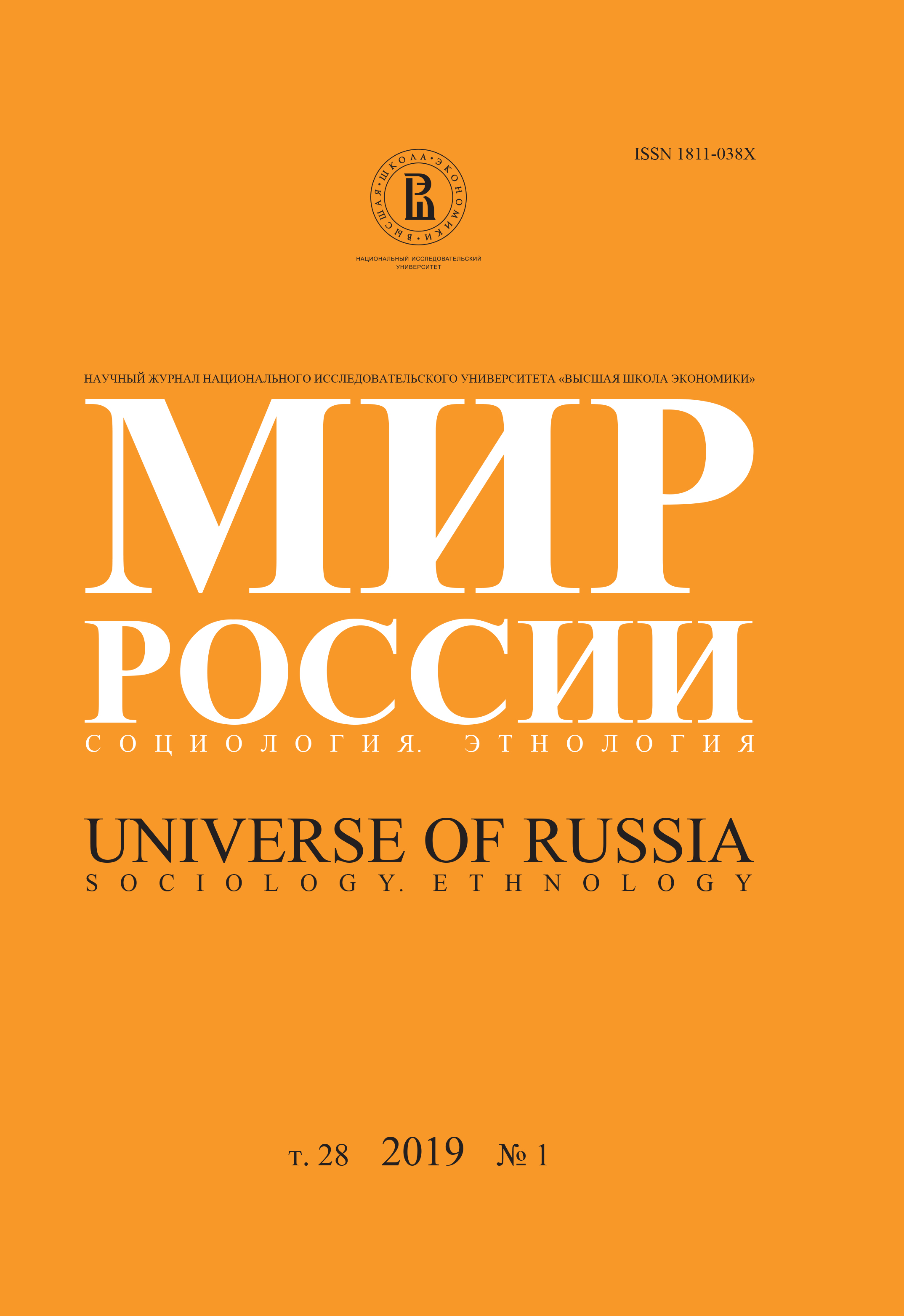Contractual Razdatok (Redistribution) and Solidarism: a New Milestone in the Russian Institutional Matrix
Abstract
Olga Bessonova – DSc in Sociology, Leading Researcher, Institute of Economics and Industrial Engineering, Siberian Branch of the Russian Academy of Sciences. Address: 17, Lavrentiev Ave., Novosibirsk, 630090, Russian Federation. E-mail: beol@ngs.ru
Citation: Bessonova O. (2019) Contractual Razdatok ( Redistribution) and Solidarism: a New Milestone in the Russian Institutional Matrix. Mir Rossii, vol. 28, no 1, pp. 7–31 (in Russian). DOI: 10.17323/1811-038X-2019-28-1-7-31
This article introduces the integral-institutional paradigm as a new theoretical framework for analyzing social and economic evolution. In this new paradigm, at the global level, the market and razdatok (i.e. redistributive, non-market principles of resource allocation) are viewed as universal coordination mechanisms. At the local (applied) level, they are viewed as equally viable methods for the state. The author revisits Russia’s and the global substantiates the argument that the welfare state and democracy in developed Western countries are the result of an inclusive synthesis of market and razdatok. The modern day institutional dilemma is presented not as socialism (a planned economy) vs capitalism (a market economy), but rather as quasi-market vs contractual razdatok. The essence of the Russian civilizational matrix is shown, which begot its ‘tribute-to-distribute’ institutions in the course of society’s adaptation and survival in a severe environment. These institutions operate through a specific mechanism of administrative complaints, which people use to communicate their demands to the state, in exchange for people’s loyal service to (and admiration for the power of) the state. The persistence of this matrix in Russia is explained by the regular reproduction of the same basic institutions of razdatok in different historical forms. In spite of the unique civilizational factors that shape the cyclical trajectory “razdatok – quasi-market – updated razdatok”, the matrix is subject to the general laws of societal development and formational change. According to the new paradigm, solidarism is a new evolutionary step in the global civilizational matrix, i.e. an integral formation combining an open access order with an inclusive synthesis of market and razdatok institutions, or contractual razdatok. One important implication of this new paradigm is that Russia’s transition to an open access order will have to be based on a combination of institutions of contractual razdatok and the ideological platform of solidarism in order to overcome the systemic institutional crisis of the quasi-market.development in the context of civilizational, formational and institutional paradigms, and substantiates the argument that the welfare state and democracy in developed Western countries are the result of an inclusive synthesis of market and razdatok. The modern day institutional dilemma is presented not as socialism (a planned economy) vs capitalism (a market economy), but rather as quasi-market vs contractual razdatok. The essence
of the Russian civilizational matrix is shown, which begot its ‘tribute-to-distribute’ institutions in the course of society’s adaptation and survival in a severe environment. These institutions operate through a specific mechanism of administrative complaints, which people use to communicate their demands to the state, in exchange for people’s loyal service to (and admiration for the power of) the state. The persistence of this matrix in Russia is explained by the regular reproduction of the same basic institutions of razdatok in different historical forms. In spite of the unique civilizational factors that shape the cyclical trajectory “razdatok – quasi-market – updated razdatok”, the matrix is subject to the general laws of societal development and formational change. According to the new paradigm, solidarism is a new evolutionary step in the global civilizational matrix, i.e. an integral formation combining an open access order with an inclusive synthesis of market and razdatok institutions, or contractual razdatok. One important implication of this new paradigm is that Russia’s transition to an open access order will have to be based on a combination of institutions of contractual razdatok and the ideological platform of solidarism in order to overcome the systemic institutional crisis of the quasi-market.






